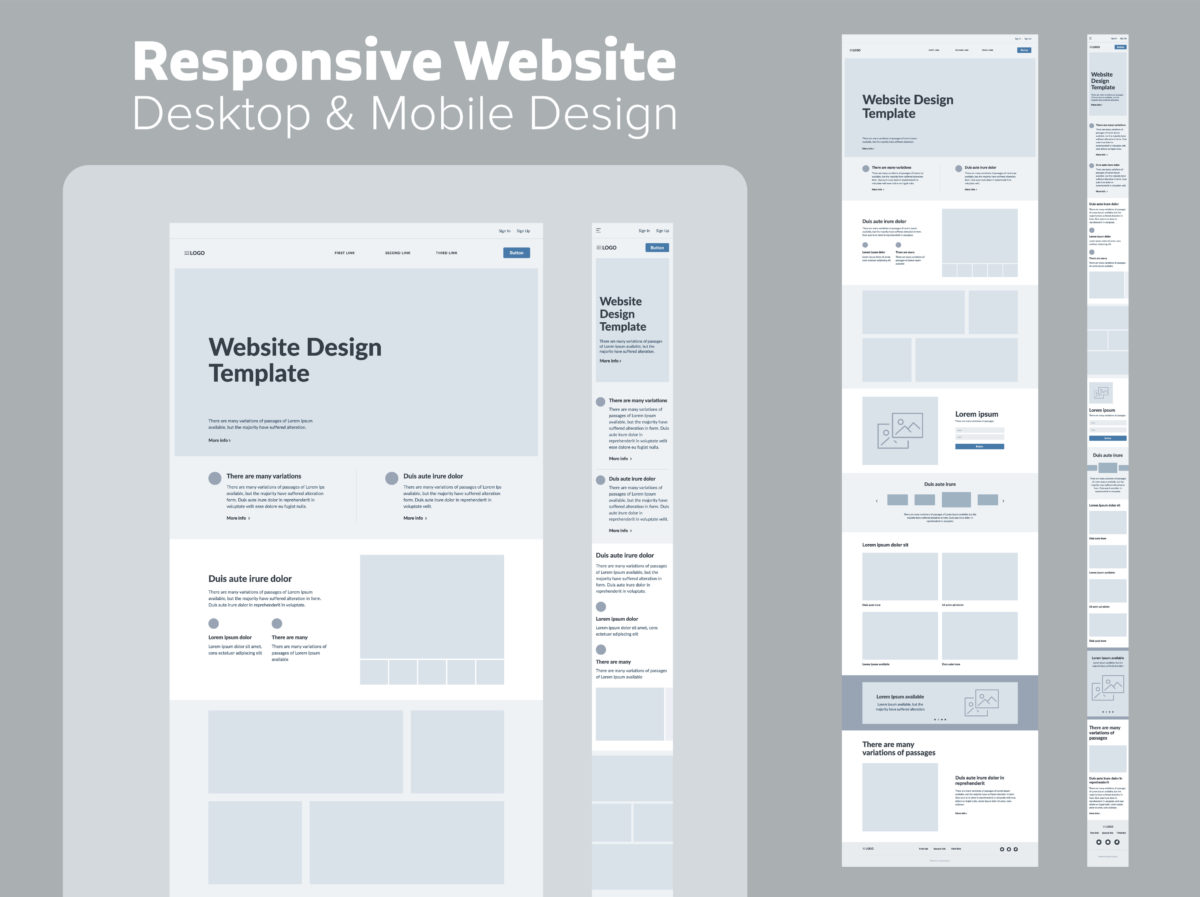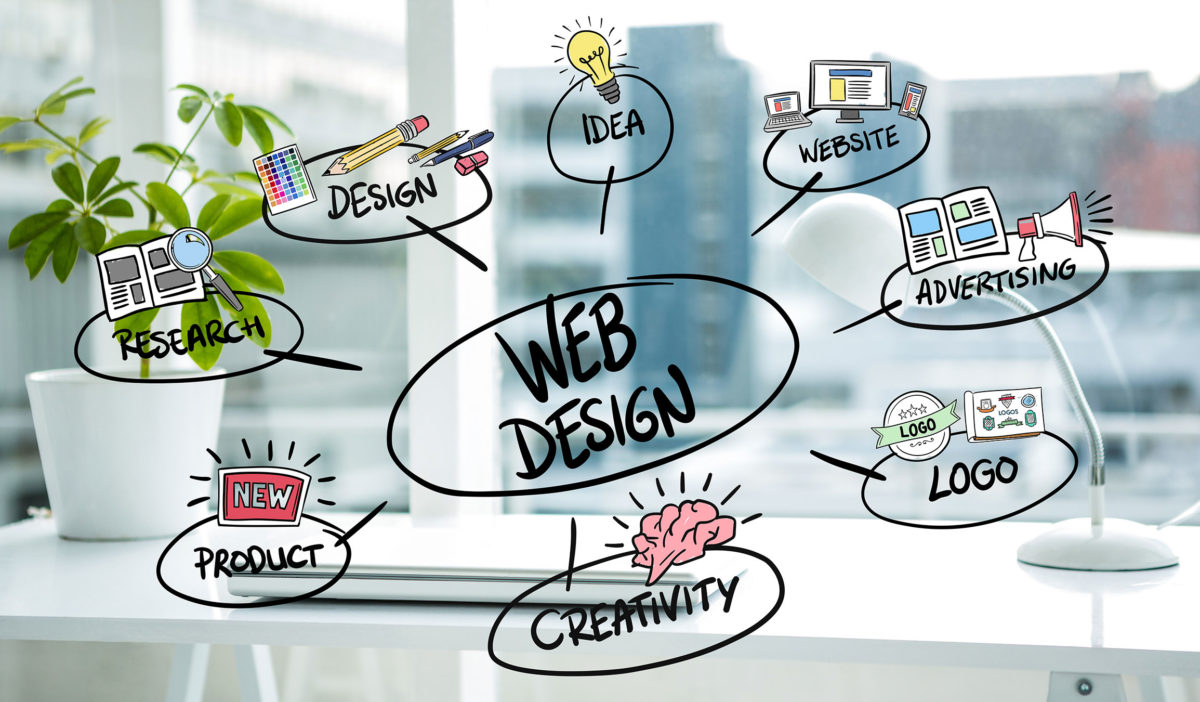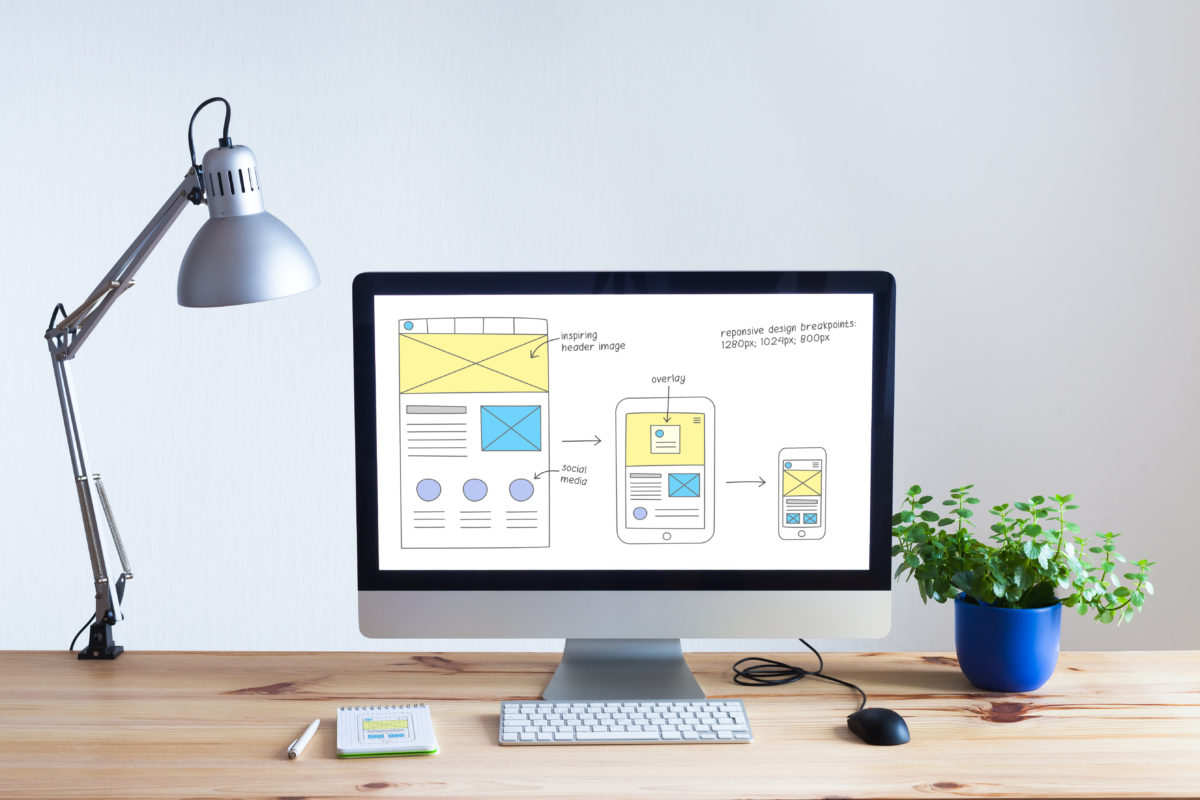According to LinkedIn, Web design and development are vital for digital marketing. In fact, they are the cornerstone of it.
They are pivotal in shaping how your target audience perceives your brand. Furthermore, they can determine whether visitors to your Website delve deeper into your company or swiftly move on to a competitor.
Central to the essence of digital marketing is a thoughtfully crafted website design that captivates visitors’ interest and ensures their active involvement, ultimately resulting in an extended duration of their visit to your webpage.
Understanding the timeline for website development is a vital component of the overall process. Factors such as complexity and specific features required must be carefully considered to ensure a smooth and efficient developmental journey.
Moreover, finding the right digital marketing agency that can cater to your specific needs and deliver an effective website within a reasonable timeframe is paramount.
You will receive guidance on the steps to follow during the design process, providing valuable insights from their perspective as experts in the field.
Join us on this blog as we unravel the intricacies of the design process, providing you with the necessary knowledge to navigate the world of web design from a digital marketing agency standpoint.
The Web Design Process: Step-by-Step
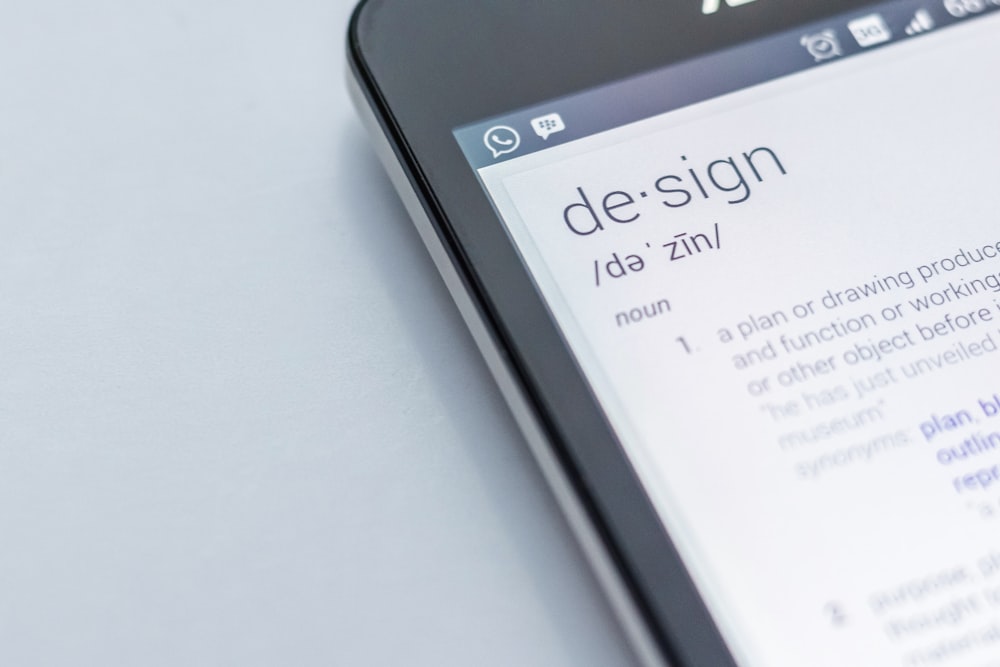
Step 1: Discovery and Planning
When you decide on a custom website, the discovery and planning phase usually is the first step. It involves understanding your business, target audience, and goals.
The web design company uses content management systems to collect information about your brand identity, design preferences, and functional requirements for the Website. They will also discuss the project scope, timeline expectations, and budget considerations.
During this phase, the development team may conduct competitor analysis and user research and create user personas to understand customer needs and behaviors. This meticulous planning ensures the Website aligns perfectly with the company’s goals and resonates with the target audience.
Factors that can affect this stage include:
- Clarity of project requirements: Clearly defining your goals, target audience, and desired features helps the agency understand your needs better.
- Availability of information: Providing the necessary materials, such as branding guidelines, content, and imagery, promptly can expedite the planning process.
- Scope changes: Changes or additions to the project scope can extend the timeline. It’s essential to understand the project scope from the outset clearly.
Step 2: Design and Mockup Creation
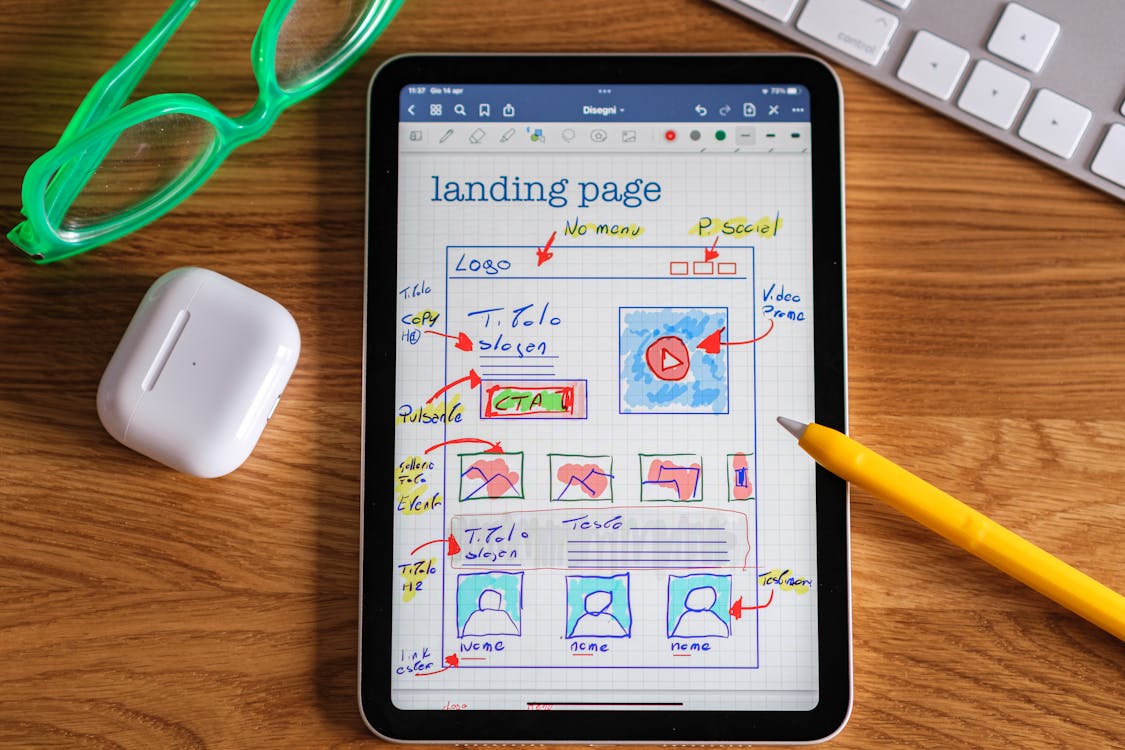
Once the planning stage is complete, the web design agency moves to the design and mockup creation phase.
The web designer will come up with visually appealing layouts while considering your brand guidelines and user experience best practices. They may present wireframes or prototypes to help you visualize the Website’s structure and functionality.
Collaboration is crucial during this stage. You can provide feedback and request revisions to ensure the design aligns with your vision. The number of revisions and the time required for this phase depends on the design complexity and communication efficiency between you and the agency.
Factors that can affect this stage include:
- Clarity of design preferences: Providing specific design preferences and references can streamline the design process and reduce the revisions needed.
- Efficient feedback and approval process: Timely and consolidated feedback and prompt approvals can help keep the design stage on track.
- Design complexity: Elaborate designs with intricate layouts, animations, or custom illustrations may require more time to create and implement.
Step 3: Content Creation and Gathering

To engage your readers, the website builder must create content that aligns with your business. This needs to be top-quality work that will help improve your Website’s search engine visibility.
While designers work on the visual aspects, the content team starts creating and gathering content for your Website. This includes writing compelling copy, sourcing images or videos, and optimizing content for search engines.
This phase’s duration depends on the content’s volume and complexity. It’s essential to provide clear guidelines and collaborate with the agency to ensure the content accurately represents your brand and meets your Website’s objectives.
Factors that can affect this stage include:
- Clarity of content guidelines: Clear guidelines for tone, style, and messaging helps the content team create content that aligns with your brand.
- Client availability for review: Promptly reviewing and providing feedback on content drafts can expedite the process.
- Content volume and complexity: The amount of content required and its complexity, such as technical or specialized topics, can impact the timeline.
Step 4: Development and Coding

The web design agency enters the development and coding phase with the design and content in place. Developers bring the Website to life by transforming the design into functional code. They build the site’s structure, incorporate interactive elements, and integrate any necessary third-party tools or platforms of the
The Website’s stag complex features include its functionality and integrations. It’s essential to allow sufficient time for thorough testing and bug fixing to ensure a smooth user experience across different devices and browsers.
Factors that can affect this stage include:
- Website complexity: Websites with intricate functionalities, custom animations, or database integrations require more time for development and coding.
- Third-party integrations: Integrating external systems, such as payment gateways or APIs, can add complexity and time to the development process.
- Testing and bug fixing: Thorough testing and resolving any bugs or issues discovered during testing are crucial for delivering a high-quality website.
Step 5: Testing and Quality Assurance

Once the development phase is complete, rigorous testing and quality assurance measures are undertaken. The Website is tested for responsiveness, functionality, cross-browser compatibility, and overall performance. Any bugs or issues discovered during testing are addressed and resolved promptly.
Quality assurance ensures your Website functions seamlessly and delivers an optimal user experience.
Factors that can affect this stage include:
- Website complexity: The more complex the Website, the more time-consuming and extensive the testing phase may be.
- Bug identification and resolution: Identifying and fixing bugs or issues discovered during testing can impact the timeline.
- User feedback and revisions: Collecting user feedback and making necessary revisions based on testing results can extend the timeline.
Step 6: Launch and Deployment

Congratulations! Your Website is now ready for launch. During this phase, the web design agency deploys the Website to the live server, configures domain and hosting settings, and performs final checks to ensure everything is in order. It’s essential to allocate time for this phase to prevent last-minute issues.
Once the Website is live, monitoring its performance, gathering user feedback, and making necessary updates or optimizations to enhance its effectiveness over time is recommended.
Factors that can affect this stage include:
- Domain and hosting setup: Configuring domain settings, DNS propagation, and ensuring smooth hosting setup can influence the launch timeline.
- Content readiness: Ensuring all content is ready and uploaded to the live site before the launch date is essential to prevent delays.
- Final checks and optimizations: Conducting the last reviews for responsiveness, functionality, and performance before the Website goes live is crucial.
The testing and quality assurance stage typically takes 1-2 weeks, depending on the Website’s complexity.

The launch and deployment phase usually takes around one week.
These timelines are approximate and can vary based on project specifics and the efficiency of collaboration between you and the web design agency. Establishing clear communication, providing timely feedback, and understanding the project scope and requirements are essential to ensure an efficient and successful web design process.
Ongoing Maintenance

After the Website goes live, it’s important to note that the web development company should provide ongoing website maintenance to ensure it always works and operates optimally.
E-Commerce Functionality
Suppose you plan to incorporate e-commerce functionality into your Website, such as online shopping carts, payment gateways, and inventory management systems.
E-commerce functionality involves intricate backend processes, such as product catalog management, order processing, and secure payment handling, which require careful implementation and testing. In that case, securely developing and integrating these features may require additional time.
Search Engine Optimization (SEO)

SEO will optimize the Website to improve its visibility in search engine results. It takes careful planning and implementation from the digital marketing firm.
The company should prioritize search engine optimization for your Website, allocating time for keyword research, on-page optimization, and content optimization.
SEO considerations may influence content creation, requiring additional keyword integration and optimization time.
Compliance and Security:

Industry regulations for your type of business will determine the compliance needed. This includes compliance with specific standards, such as accessibility guidelines and data privacy regulations.
Secure data handling and other measures like encryption can also affect the timeline. These compliance and security requirements may involve additional steps, such as audits and reviews, to ensure your Website meets the necessary standards.
By discussing these factors with the web design agency upfront, you can better understand how they will impact the project timeline and set realistic expectations for both parties involved.
The Benefits of a Well-Designed Website

A well-designed website offers numerous advantages that can significantly impact your business’s success and online presence. Here’s a look at the main benefits that come with investing in a professionally crafted website:
Enhanced User Experience
A well-designed website prioritizes user experience, ensuring that visitors can navigate and interact with your site seamlessly.
By employing intuitive navigation, visually appealing layouts, and easy-to-use interfaces, you create a positive and enjoyable experience for your audience. This, in turn, increases user engagement, encourages longer visit durations, and boosts the likelihood of conversions.
Improved Brand Perception and Credibility
Your Website is a virtual storefront reflecting your brand’s identity and values. A professionally designed website with a cohesive visual aesthetic instils trust and credibility in your audience.
When your Website looks polished and represents your brand consistently, it reinforces a positive perception of your business and fosters a sense of professionalism.
Increased Search Engine Visibility

A well-designed website incorporates search engine optimization (SEO) strategies that improve its visibility on search engine results pages.
By optimizing your site’s structure, content, and technical aspects, you enhance its chances of ranking higher in relevant search queries. This will drive organic traffic to the Website.
Mobile Responsiveness
Mobile phone use is increasing, so ensuring your Website is mobile-friendly is vital.
A well-designed website is responsive, adapts seamlessly to different screen sizes and resolutions, and ensures the users receive an optimized and consistent experience, whether they access your site through a desktop, laptop, tablet, or smartphone.
Mobile responsiveness is also a ranking factor considered by search engines, further emphasizing its importance.
Effective Calls-to-Action (CTAs)
Well-designed websites strategically incorporate clear and compelling calls-to-action (CTAs). Whether it’s encouraging visitors to purchase, sign up for a newsletter, or contact your business, strategically placed CTAs guide users toward desired actions.
By optimizing the placement, design, and messaging of CTAs, you can increase conversion rates and achieve your business objectives.
Showcasing Products and Services
A well-designed website allows you to present your business in its best light. An aesthetically pleasing and well-organized website will enable you to effectively showcase your products and services.
This is done through high-quality visuals, engaging descriptions, and intuitive product/service categorization; you can capture the attention of potential customers, highlight your offerings, and entice them to explore further.
Seamless Integration of Features and Functionalities
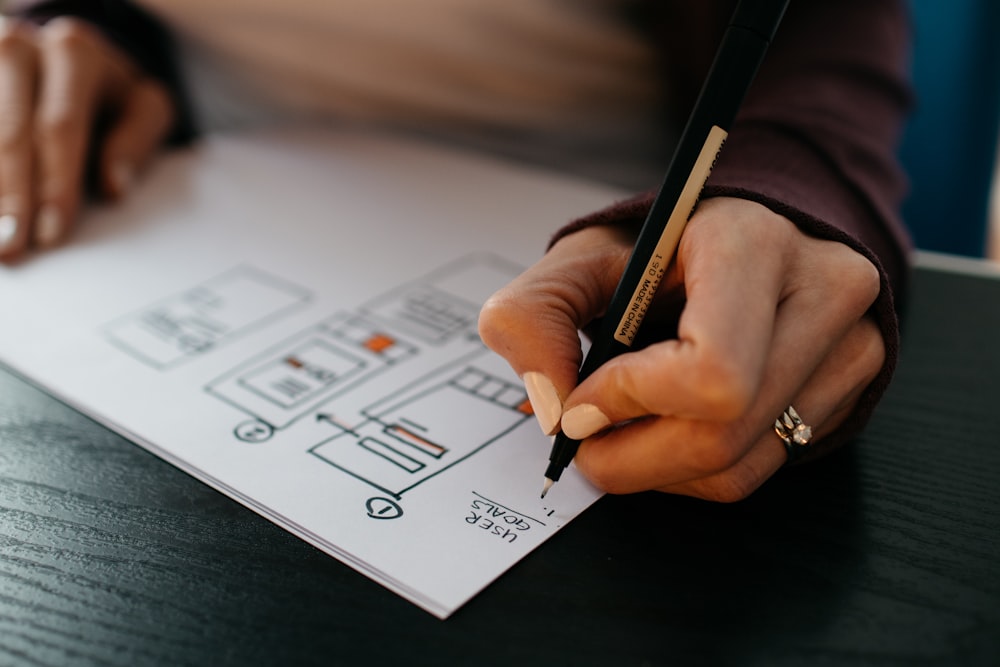
A professionally designed website can seamlessly integrate various features and functionalities to enhance user experience and meet your business needs.
From contact forms and live chat support to e-commerce functionality and social media integration, these additions provide added convenience for users and expand your business capabilities.
Scalability and Adaptability
A well-designed website takes into account future growth and scalability. It can be easily updated, expanded, and adapted to accommodate changing business needs, technological advancements, and evolving user expectations.
This flexibility ensures that your Website remains relevant and effective in the long run.
Investing in a well-designed website is a valuable step towards establishing a solid online presence, fostering credibility, and effectively engaging with your target audience.
By prioritizing user experience, optimizing for search engines, and appealingly showcasing your offerings, you set the stage for growth and success in the digital landscape.
Benefits of Using an Expert Web Design Agency:

For several reasons, having the best web development agency to build your Website is crucial. Here’s why:
Expertise and Professionalism
A top-notch web development agency brings a wealth of knowledge and professionalism. Usually, they have developers, designers, and digital experts who understand the intricacies of building a high-quality website.
Their knowledge extends beyond design and development, encompassing SEO, UX, and mobile responsiveness. The goal is a site that functions flawlessly, ensuring a positive user experience.
Customization and Unique Branding
The best web development agencies understand the importance of customization and unique branding. They can tailor the design, layout, and functionalities to suit your needs, ensuring a cohesive and consistent brand presence across your online platforms.
Cutting-Edge Technologies
Web development is rapidly evolving, and the best agencies stay up-to-date with the latest technologies and industry trends.
They have access to advanced tools, frameworks, and coding languages that enable them to create modern and innovative websites.
By leveraging these cutting-edge technologies, they can deliver a visually appealing, technically robust, secure, and scalable website.
Ongoing Support and Maintenance
Building the Website will require ongoing support and maintenance to ensure optimal performance.
The best web development agencies offer post-launch support, including regular updates, bug fixes, security monitoring, and feature enhancements.
Their commitment to ongoing maintenance ensures that your Website remains secure, up-to-date, and aligned with the evolving needs of your business and industry.
FAQs
How can I expedite the web design process?
To expedite the web design process, ensure clear and timely communication with the web design agency, promptly provide all necessary assets and information, and be responsive during the feedback and approval stages.
Can I launch my Website before all the content is ready?
Having all essential content ready before launching your Website is generally recommended. However, consider launching the site in stages, starting with the core pages and gradually adding additional content.
Can a website be amended after launch?
Yes. Most web design agencies offer maintenance and support services, allowing you to update and optimize your site as your business evolves.
What if I need ongoing website maintenance and updates?
Many web design agencies offer ongoing maintenance and support services to ensure your Website remains secure, up-to-date, and optimized for performance.
Discuss the options with the web design agency to find the best fit for your needs.
Will my Website be mobile-friendly?
In today’s mobile-centric world, your Website must be mobile-friendly. A reputable web design agency will ensure that your Website is responsive and optimized for a seamless experience across various devices.
How can I ensure the timely completion of my Website?
To ensure the timely completion of your Website, establish clear communication channels with the web design agency, provide comprehensive project requirements, actively participate in the feedback and approval process, and adhere to mutually agreed timelines.
Can I choose my hosting provider for the Website?
In most cases, web design agencies provide hosting services as part of their packages. They can work with your chosen hosting provider or guide you in selecting a suitable hosting option.
However, if you have a preferred hosting provider or already have an existing hosting plan, you can discuss this with the web design agency.
How much input will I have in the design process?
As a client, your input and feedback are essential throughout the design process. A reputable web design agency will collaborate closely to understand your vision and incorporate your preferences.
They will seek your input during the design phase and provide opportunities for revisions to ensure the final design meets your expectations.
Conclusion
In conclusion, the timeline for building a website is determined by many different factors, including client collaboration, project complexity, and content readiness.
By following the step-by-step web design process, working closely with the web design agency, and adhering to mutually agreed timelines, you can ensure a smooth and efficient website development experience.
Remember that a well-designed website offers numerous benefits, including enhanced user experience, improved brand perception, increased search engine visibility, mobile responsiveness, effective CTAs, showcasing products and services, seamless feature integration, and scalability.
Invest in a well-designed website to establish a solid online presence and drive the success of your business.
References:






























